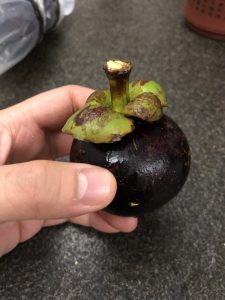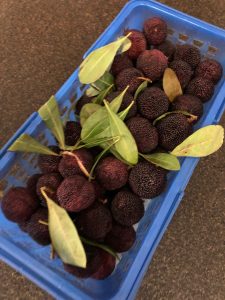First of all, I would like to thank Alara, Geneviève and Katerina for their amazing blog post on the Waorani people. It was delightful to learn about their foodways and their engagement in fight for climate change and land sovereignty.
I am specifically fascinated by the regular consumption of “oonta” or hunting poison by the Waorani people and the special preparation of the plant so the poison wouldn’t cause any health consequences. I am amazed by this place-based knowledge and it reminds me of a Chinese saying called “一方水土养一方人”, which directly translates into “an acre of land gives rise to an acre of people”. This saying pretty much summarizes the cosmology and cultural identity that were passed down to me in the sense that our body type and personalities are determined strongly influenced by the characteristic of our land.
I am from Guangzhou, a city in the southeastern region of China, which has a subtropical monsoon (wet-dry) climate, with typically mild winters and hot, humid summers. Because of this wet and mild climate, people from this region is usually known to have gentle, soft-spoken personality, compared to the bold and strong personality from some of the northern region of China.
Although my hometown is located in the subtropical region and we grow a lot of subtropical fruits, most of these fruits such as lychee, longan and mango actually cause energetic imbalance in our bodies because they generate too much heat in the body and cause inflammation. In order to enjoy these fruits without having a sore throat or getting a fever, we usually soak them in salt water before consumption. In addition, we make all kinds of medicinal tea and soups with cooling properties to combat the over-accumulation of heat from the weather and the foods we consume. When I was growing up, my grandparents would always make a sweet tasting soup using carrots, water chestnut and corn silk in the summer to “cool down” the body. In the winter, we usually make soups that have warming properties. A typical dish would be chicken soup with whole chicken, goji berries and reishi mushroom to not only warm the body, but also strengthen our immune system. My partner, who has no sense of Chinese medicine once ate a whole bag of goji berry as they are perceived as “superfoods” in the West afterwards suffered from nose bleeding caused by the inflammation from their strong effect of warming property.
These traditional knowledge are what I would call “blood knowledge” because they are really embodied knowledge in the sense that I have a sense of intuitive knowledge about my body that I can sense if there is too much heat built up in my liver or there is too much cold stagnant around my lower back.
Anyways, here are some pictures of fruits I love to eat when I am back home.


ChristinaVasileiou
December 3, 2020 — 8:45 pm
Hi Shadow,
Wow very cool! I remember having lychee for the first time when I was a teenager and it was quickly my favourite fruit. It’s very interesting to hear about your family’s different practises around eating certain foods and how they have passed that knowledge down to you. The part about the goji berries made me laugh out loud! I don’t know much about Traditional Chinese Medicine but the part about certain foods heating and cooling the body makes me think of it!
Grace
December 4, 2020 — 3:46 pm
Hey Shadow! My partner grew up in Guangzhou (& Taipei) for much of his childhood, though he’s Singaporean, and he’s told me a lot of similar things. The first time I went to meet his grandmother, she prepared different dishes and fruits for us, and my partner explained why and how each food would be good for my health. I’m from the U.S. so I wasn’t aware of the Chinese understandings of various ingredients, but I really enjoy learning about it. Thanks for sharing!